Cardiovascular Effects of COVID-19
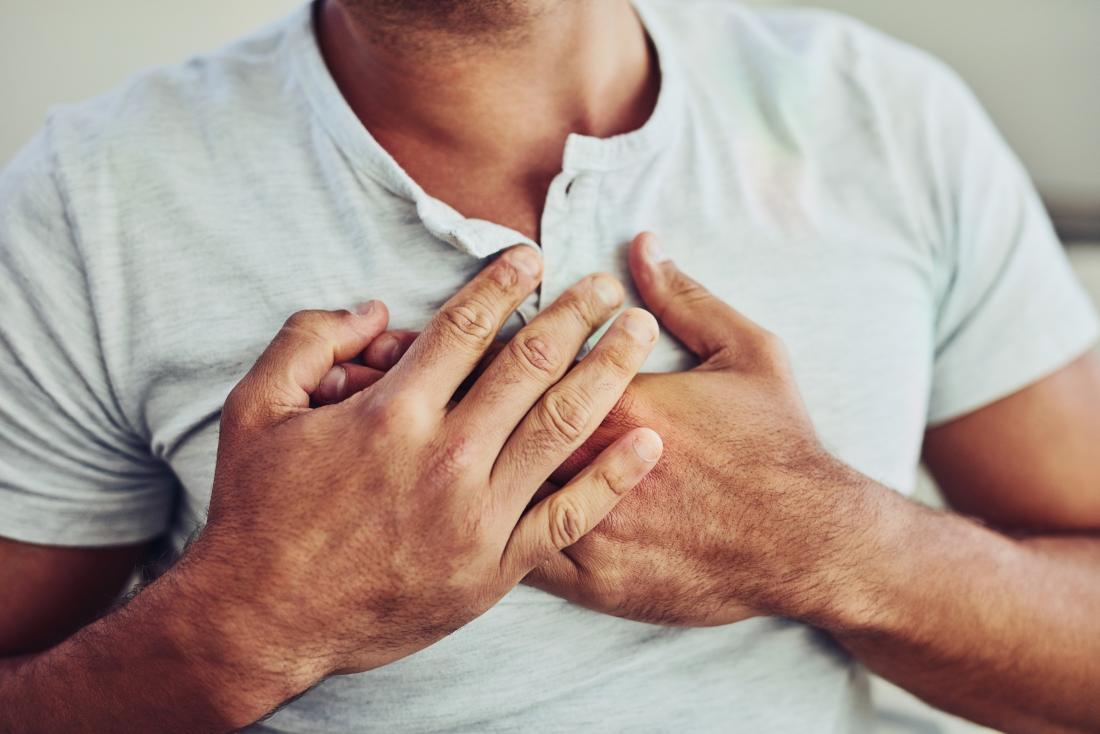
Cardiovascular Effects of COVID-19
COVID-19 has become a global pandemic that has affected the lives of billions of individuals. It is caused by a strain of coronavirus known as severe acute respiratory syndrome coronavirus 2 (SARS-CoV-2). Cardiovascular disease is analyzed to be linked with worse outcomes and increased risk of death in patients with COVID-19. COVID-19 can also induce myocardial injury, arrhythmia, acute coronary syndrome, and venous thromboembolism.
More than 10 million people have been infected with COVID-19 infection. COVID-19 primarily infects the lungs and the respiratory system. However, the second main target is the cardiovascular system and coagulation mechanisms of the biological system affected due to the viral replication.
The COVID-19 virus is diagnosed to be the primary risk factor for various cardiovascular conditions such as pericarditis, myocarditis, arrhythmias, and myocardial injury, cardiac arrest, heart failure, and coagulation abnormalities. Coronavirus, directly and indirectly, causes tissue damage leading to cardiovascular abnormalities. In recent cases, direct myocardial cell injury and indirect damage to the myocardial cell due to inflammation have been reported.
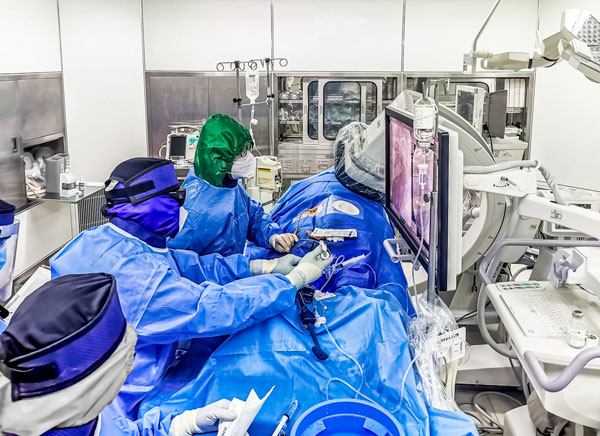
Cardiovascular Conditions due to COVID-19
Cardiovascular co-morbidity is the major risk factor among people infected with the coronavirus. Tthe his leads to severe COVID-19 cases and might lead to fatality.
Patients with the cardiovascular disease usually suffer from 2 or more comorbidities. These often include hypertension and diabetes which increase the risk of severe disease and death. The risk factors increase when combined with advanced age. The cardiac implication of COVID-19 is severe in the case of patients suffering from heart failure and diseases such as ischemic heart disease.
Cardiovascular disease or CVD patients are easily affected with severe COVID-19. COVID-19 infection becomes a serious condition due to various forms of heart condition or heart function including:
Hypertension and diabetes - The angio-converting enzyme found in organs such as the nose and lungs is vital for managing blood pressure. This enzyme is identified as the receptor to which the coronavirus binds for the main entry. Medication for hypertension inhibits or block enzyme activity such as ACE inhibitors (ACE-i) and ACE receptor blockers (ARB). These might increase the risk of cardiac problems and thus complicating the COVID-19 infection. Diabetic people are at high risk for COVID-19 related morbidity and makes them more vulnerable to viral infections.
Acute coronary syndrome - The “troponins” regulate the contractions of our heart muscle. This can be high in patients suffering from COVID-19 who are not otherwise diagnosed with heart disease. Along with the risk from coronavirus infection, heart patients also face the risk of fatty deposits in the arteries or plaque. This might rupture the arteries and medicines such as aspirin would be a possible therapeutic way forward.
Injury to muscles tissues of the heart.
Myocardial injury -This is the injury to the thick inner part of the heart muscle. It can be detected by measuring levels of proteins called troponins, which help in regulating the contraction of the heart muscle. COVID-19 leads to an increase in the level of cytokines that sums up the overactive immunity processes. These could directly or indirectly cause some patients to succumb. Cytokines are small proteins released by the cells. They would trigger other cells to join the fight in the inflammatory response.
Heart failure - Managing patients with heart failure with suspected or confirmed COVID-19 begins with recognizing that respiratory infection. This is a common trigger of suddenly worsening symptoms– heart failure decompensation. Patients with chronic cardiac conditions, including HF, are predisposed to respiratory infections and to the complications that can occur with signs and symptoms of both cardiac and respiratory conditions overlapping. The high virulence and transmissibility of COVID-19 call for extraordinary efforts to minimize exposure to both patients and medical staff.
Rheumatic heart disease, and
Chaga’s disease.
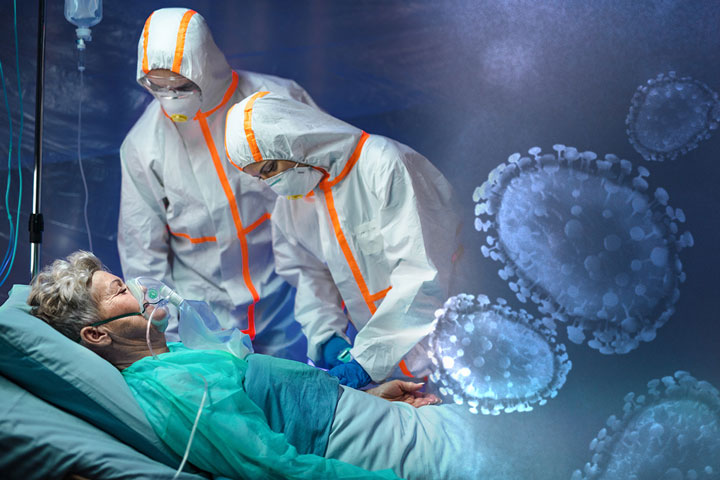
Symptoms of Cardiovascular Disease affecting COVID-19
General symptoms of COVID-19: The most common symptoms include cold and flu, intermittent diarrhea, anosmia, and ageusia. The appearance of symptoms is usually noticed 5 days after exposure to the viral particles of coronavirus.
Cardiac Abnormalities Due to COVID-19 Infection: Chest pain is the main symptom symbolizing a heart condition. It has been observed elevated levels of troponin, (CK) creatine kinase, natriuretic peptide (NT-Pro-BNP) were present with few primary coronary obstructions. Both direct and indirect mechanisms of tissue damage lead to fatality in people suffering from cardiomyopathy. Ventricular function and acute heart failure might lead to mortality. Cardiovascular problems mainly arise in the stage after the occurrence of respiratory distress. Coronavirus might directly enter into the heart only after the pulmonary viral invasion. However, indirect damage begins with the triggering of a hyper-immune reaction during viral invasion into the lungs.
COVID-19 infection causes both intermediate and long-term consequences for the cardiovascular system. The cardiovascular effects of COVID-19 extend beyond acute infection. The impacts of COVID-19 on the cardiovascular system are both short and long-term.
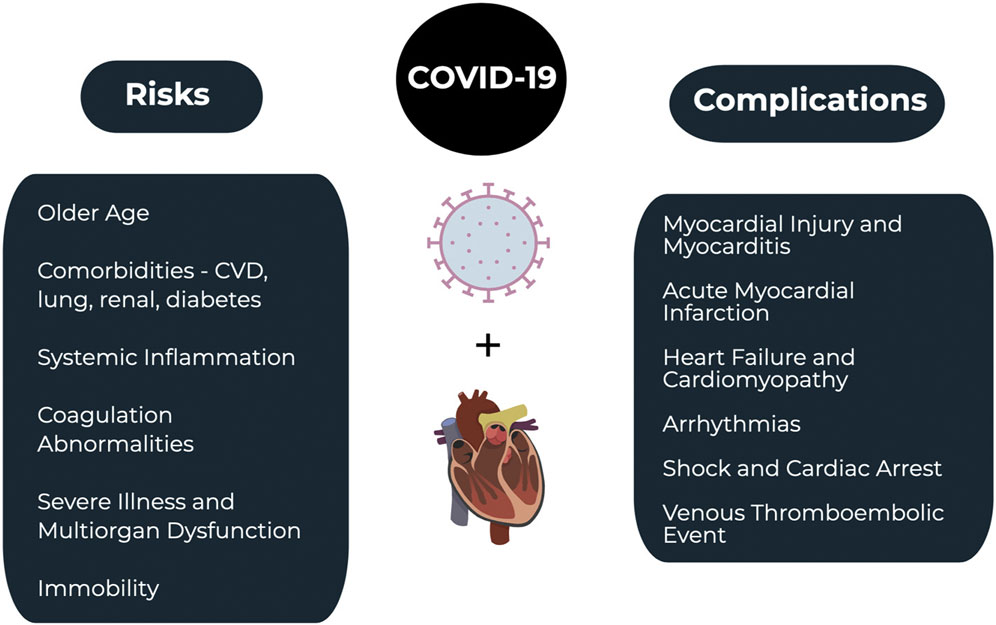
Treatment of Cardiovascular Disease due to COVID-19
Eat well and Drink wisely: you should cut down on sugary beverages and fruit juices and choose water or unsweetened juices. It is good to swap sweet, sugary treats with fresh fruit as a healthy alternative. It is good to avoid alcohol or cut down on recommended guidelines. Limit processed and prepackaged foods that are often high in salt, sugar, and fat.
Get more active: It is advised to do moderate-intensity physical activity to keep yourself active. This would reduce the risk of developing heart diseases as well as improve the existing ones.
Quit Smoking: This is the best thing to improve your heart health. It has been observed that quitting smoking substantially reduces the risk of coronary heart disease. Even secondhand or passive smoke is also a cause of heart disease in non-smokers.
Protection from COVID-19: Precaution is better than cure. Staying away from COVID-19 is best for people with existing heart problems. Few important tips to stay away from COVID-19 include:
Wash your hands frequently with soap and water or use alcohol-based sanitizer.
Maintain social distancing of about 2 meters.
Avoid touching your face especially your eyes, nose, and mouth.
Cover up using masks to protect others. You should always cough or sneeze in a tissue or your elbow.
If you have a fever, cough, or difficulty breathing, seek medical advice immediately.
Getting vaccinated with complete dose.
Stay at home and stay safe.
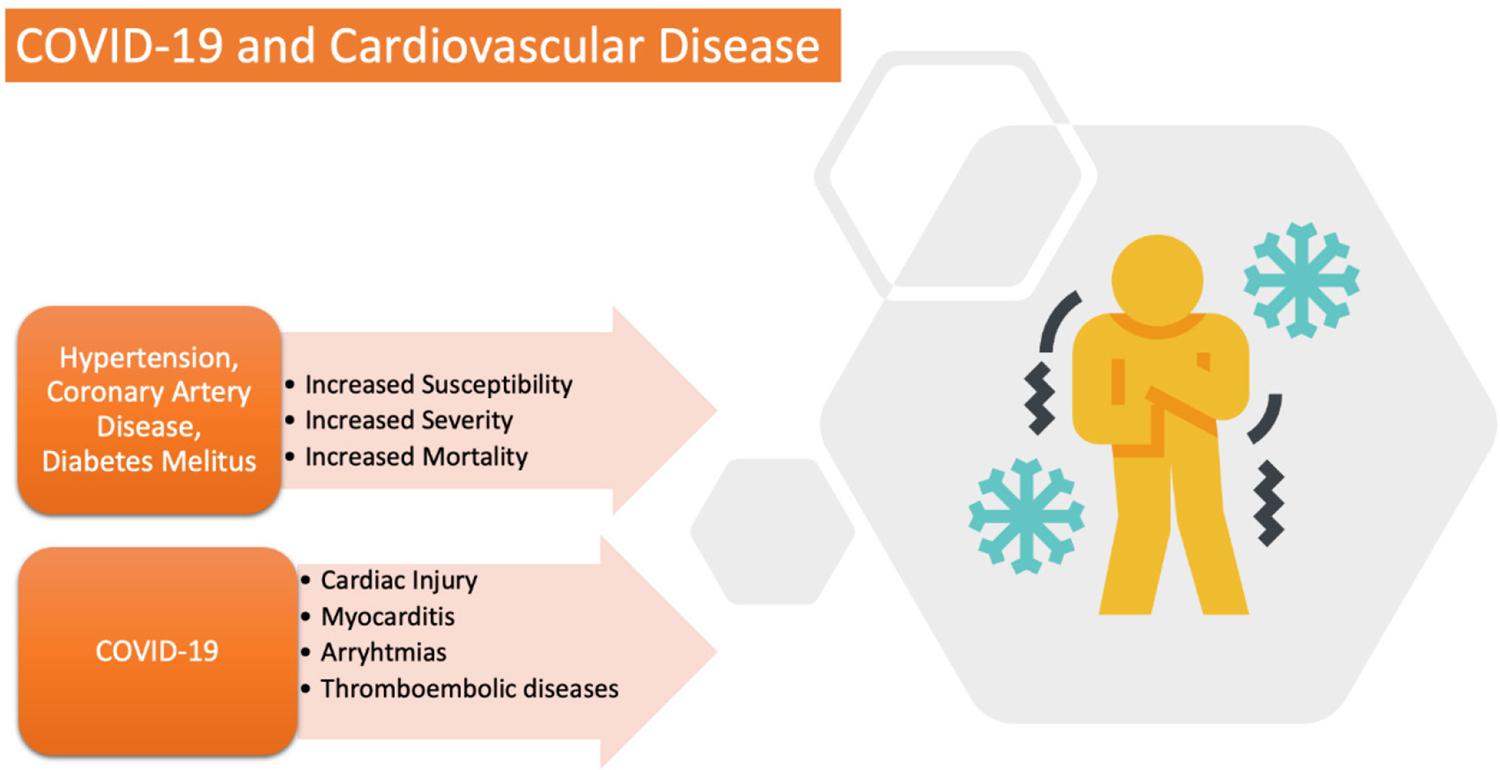
Outlook
Covid-19 infection can be caught by anyone of any age, race, and sexuality. However, people with underlying heart conditions are more likely to show symptoms of the infection or to have a more severe infection than others. Patients with heart conditions including heart failure, dilated cardiomyopathy, advanced forms of arrhythmogenic right ventricular cardiomyopathy, and congenital cyanotic heart disease are at the highest risk of contracting COVID-19 infection. Older age people and people with the presence of underlying conditions such as heart conditions have been risking factors for death. Staying away from COVID-19 by following precautions and vaccination is the best way to protect yourself.
If you or anyone you know is suffering from the effects of Covid, our expert providers at Post Covid Centers will take care of your health and help you recover.
Call us on (469) 545-9983 to book a telehealth appointment for a home check-up.
Post Covid Syndrome vs. Fatigue
While COVID-19 is a short-lived disease in most people, others experien...
Post Covid Syndrome vs. Skin Weakness Problems
A new study illustrates that some patients with COVID-19 disease have continuous skin-associated symptoms...
RELATED BLOGS
